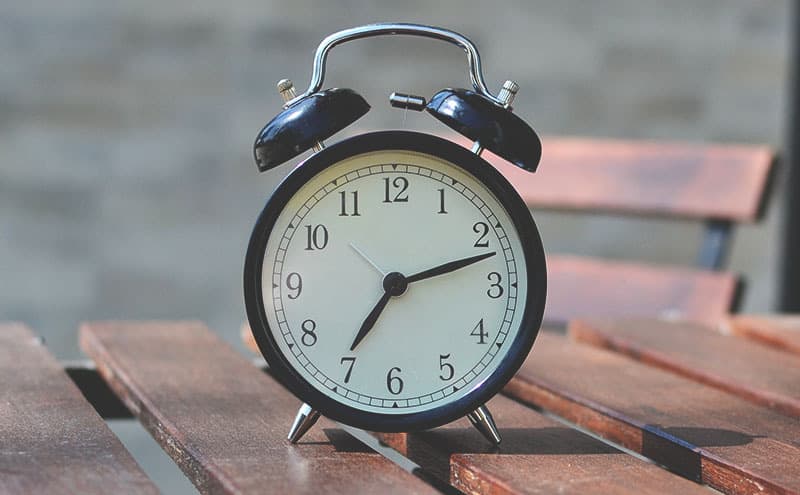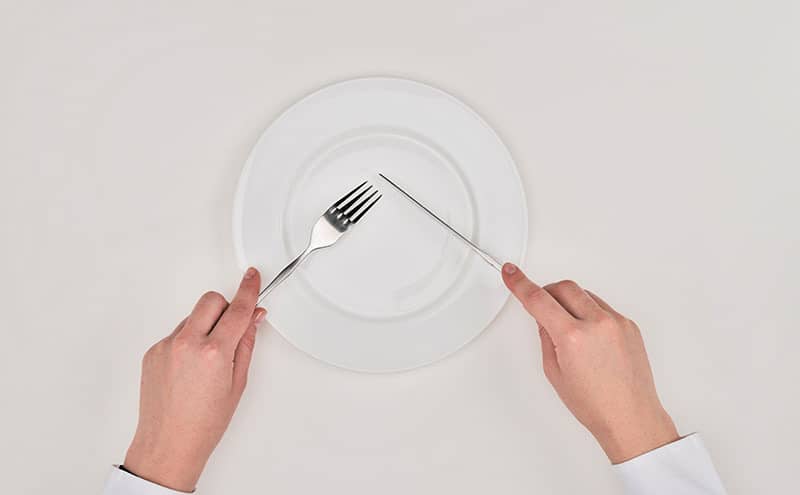
At a Glance
- Circadian rhythm is your body’s natural regulation of sleep and wake times.
- Disruption of the body’s internal clock can have a huge effect on productivity and overall health.
- You can keep your circadian rhythm in check with healthy habits such as creating a dark sleep zone, getting out in the sunshine during the day, managing stress and eating a healthy diet.
Want more energy and productivity in your life? Want a boost in your creativity? Always feeling lethargic mid-afternoon? Don’t worry, it’s natural for your ‘body clock’ to dip from time to time.
Stop reaching for that caffeine kick and sugar fix; a few simple life hacks can help you manage your body’s internal clock, also known as circadian rhythm.
Changes in your daily routine can reap massive rewards for your overall health and well being.
Read on to find out how using simple ways to balance your ‘biological clock’ will make you feel more alive and energy levels will sore.
What Is Your Circadian Rhythm?
Our circadian rhythm is like our body’s calendar. Scheduling sleep, energy highs and lows, when we need to eat and ensuring adequate energy. (source)
Known as your sleep/wake cycle or body clock, your circadian rhythm’s job is to keep you energized during the day and make you feel sleepy at night.
Circadian rhythms are produced naturally within the body, responding to light and darkness in your environment. These rhythms affect:
- Body temperature
- Sleep and wakefulness
- Various hormonal changes
Sunlight plays the largest role in setting your circadian ‘clock’. Dawn triggers basic biological changes in your body – rise in heart rate, blood pressure and body temperature – all signals it’s time to wake.
Levels of wakefulness rise and dip throughout the day as your circadian clock works. As darkness descends, your body’s clock responds – dropping in temperature, heart rate and feeling drowsy – all signalling sleep time is near.
Why Is Your Circadian Rhythm Important?
You should be amazed by how incredible the biological clock ticking inside your body is.
Your circadian rhythm is very precise – roughly following a 24-hour cycle – and this internal timekeeping mechanism regulates our basic functions of sleep-wake and feeding patterns.
Many physiological changes are governed by circadian rhythm, including heart rate, red blood cell production, hormone-production, body temperature and metabolism.
Therefore, keeping your internal body clock on track is very important for your general well being and mood.
Disruption of a balanced circadian rhythm has not surprisingly been linked to various sleep disorders, such as insomnia.
Abnormal circadian rhythm has also been associated with a number of health conditions including:
Circadian Rhythms and Hormone Regulation
Hormones regulate our entire physiology and depend upon the functioning of our biological cocks. As you can imagine, if your circadian rhythm is out of whack, this can lead to hormones being produced at the wrong times or at the wrong levels.
The most important hormones affected by your circadian rhythm are melatonin and cortisol. Melatonin regulates sleep by causing drowsiness and cortisol is used to form glucose and enables anti-stress and anti-inflammatory functions in the body. (source)
Your body’s natural internal 24-hour clock influences how much melatonin is made. A slow releases of this hormone into the bloodstream starts between 8 and 10 pm making you feel drowsy and signaling your body to prepare for sleep.
Cortisol is often referred to as the “stress hormone” because it is released during times of stress and creates that “fight or flight” response. Producing too much cortisol at the wrong times can leave you in this heightened state of stress on a continuous basis.
However, cortisol is not solely responsible for the stress response. Most of our cells have cortisol receptors and it has a huge role in balancing blood sugar levels, keeping metabolism in check and even supports and protects the fetus during pregnancy. Therefore, cortisol is a crucial hormone for overall good health and keeping it regulated is seriously important.
The point is not only do you need to get enough sleep, but you need it at the right time! Stick to regular sleep routine going to bed late and expecting to catch up by waking later just doesn’t work. You can’t cheat nature and your circadian rhythms!
Can you Change Your Internal Clock?
Once you understand how your circadian rhythm affects your life, you can control some environmental factors yourself.
Here’s a few things you could try to restart your internal clock and get back in sync:
Chronotherapy (sleep phase)
Shifting sleep times later each day usually over a week period should gradually move your sleep and wake times around the physical clock until they’re back in sync. With chronotherapy, consistency is key to success. (source)
Light Therapy
Light therapy uses a light box to mimic daylight and can, over several weeks, adjust your waking time to earlier in the morning. Using light and absence of light to help can our bodies’ circadian rhythm determine where in the 24-hour cycle we are. (sources 1, 2)
Stop Eating for a Day
Fasting for about 16 hours before waking up could help reboot your sleep cycle. This is linked to the food rhythm which, when hungry, overtakes the circadian clock. (source)
Medication
When it comes to medication to get your internal clock back where it needs to be, lots of people try melatonin supplements.
As we’ve already mentioned, melatonin is a hormone which is key in controlling your daily sleep-wake cycles. (source) While there is no substituting a healthy lifestyle, sometimes we need a helping hand and for the most part, melatonin supplements work. Users have praised its lack of side effects, low cost, low addictiveness and fast action.
Routine: Why It’s so Important
We all know routine makes life easier. Our bodies don’t like to depart from their natural biorhythms and often tell us so; it’s hardly surprising that our bodies develop symptoms indicative of a system out of sync.
Sluggishness and lethargy are most typical signs, but digestive problems, headaches, depressed mood, poor memory and lack of coordination are also common.
Routine is very important in running the body’s daily three 8-hour cycles:
- Elimination: (cleansing and release of toxins) 4 am -12 pm
- Appropriation: (digesting and metabolizing of food) 12 pm – 8 pm
- Assimilation: (absorption of nutrients and use) 8 pm – 4 am
The ‘elimination cycle’ involves cleaning toxins from the body through organs like the liver. (source)
The ‘appropriation cycle’ is when we should be eating our main meals. The body is most efficient at digesting and dealing with food in this cycle and burning them up faster because we should be at our most active. (source)
The ‘assimilation cycle’ is the time when you should be most relaxed, asleep or least active. This allows the body to work on healing and rebuilding using the goodness from your food during the day.
Simple Hacks to Manage Your Biological Clock
Understanding our basic body rhythms can enhance our health and regulate energy balance, so what can we do to help this natural circadian rhythm?
Enjoy The Sunshine During Daylight Hours
Natural light is most potent agent in synchronizing your daily rhythm; timing is key so get out in the sunlight soak in some vitamin D.
Keep Artificial Lighting Low
Indoor lighting affects circadian rhythm so in the evening turn the lights down low – no harsh bright lights and avoid blue light from computers, phones and tablets. (source)
Create a Dark Sleep Zone
Darkness is crucial to your sleep schedule and mental health. The best thing to do is make your bedroom as dark as possible. Try blackout blinds to stop that streetlight polluting your bedroom. Ban all electronic equipment from the bedroom, even that radio alarm clock – this is your zen zone for peaceful rest.
Keep the Temperature Down
Often we make our bedrooms very warm and then tuck ourselves up under warm blankets. Simply cooling the ambient room temperature down to an optimal 15 – 18 degrees celsius (source) can help us get that peaceful night’s rest.
Reduce and Manage Stress
Cortisol is the master stress hormone and very important for the circadian rhythm. If you’re under stress, you’ll have all the effects of elevated and dysregulated cortisol to deal with, which will undoubtedly disrupt your circadian rhythm.
Try taking up meditation, yoga or going for a walk – most importantly, take time out for yourself to relax.
Be Careful What You Eat and Drink
Yes we’ve all heard it before: Avoid caffeine, alcohol and sugary snacks 4 hours prior to sleep. (source) These seriously mess up your sleep, especially your REM cycles, which may result in waking many times in the night. Try alternatives like chamomile tea. (source)
Drink a Glass of Water When You Wake
Yes that’s right hold off on the caffeine to fire you up. Reach for that water instead! You are dehydrated when you wake and a quarter of a litre of water fires up your metabolism and helps you flush out toxins.
Final Thoughts
Not sleeping enough and not sleeping well enough are two factors that have a drastically negative impact on your productivity throughout the day.
When you’re well rested, your performance of daily activities is effortless. You easily find tasks quickly completed and even have time to do more, and fit more ‘me time’ into your daily routine.
Keeping on top of your internal body clock is one of the best ways to stay healthy. Being out of sync is a downward spiral which can spark a whole host of health issues. So do what you can to make sure you get some Zs instead of spending hours counting sheep!


Leave a comment